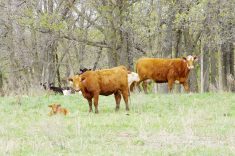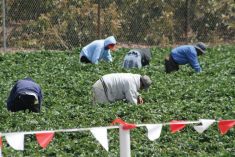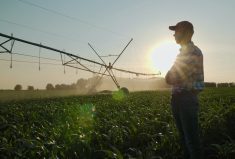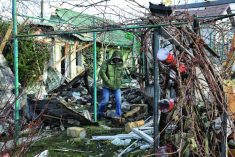Summer is on the way, and so are 4-H camps, which have run every year since 1917 except for a COVID-19 break in 2021.
“We get youth who come from all over to camp. A lot of the youth we serve in the camps are rural. This is the one camp that they hear about from their communities and then they come from all over and get to meet each other,” said Madeleine Lust, programming co-ordinator with Alberta 4-H.
Between 900 and 1,000 youths from every area in the province attend 4-H camp each summer. There are camps in the northeast (Moose Lake), the south (Elkwater) and one at Lac Cardinal in the Peace. For the past couple of years, 4-H has introduced a family camp, which this year runs from July 28- 30.
Read Also
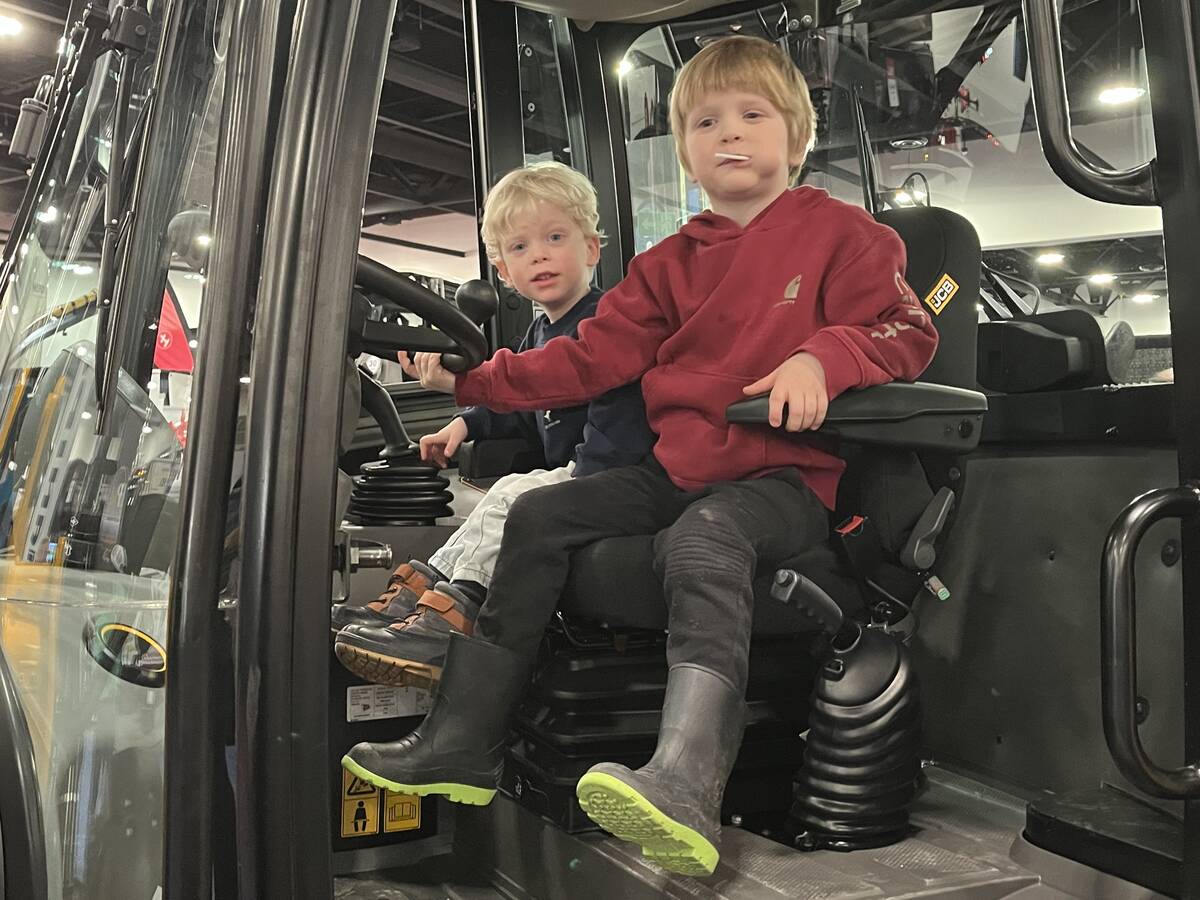
Innovation takes centre stage at record-breaking Ag Expo
Lethbridge event hits capacity with 326 global exhibitors showcasing the latest ag tech, innovation and the 129th North American Seed Fair.
“It’s for all ages. We encourage parents to bring their kids. So even members younger than nine can come and get a camp experience. It runs on a weekend, and they will camp out at the Alberta 4-H centre,” said Luft.
The Alberta 4-H centre is on Battle Lake near Westerose.
Luft said the camps are focused around the 4-H motto “Learn to do by doing” and feature hands-on experience.
“We do have our positive youth development model. We make a lot of decisions based on this model.”
Key features in the development program focus on positive values, responsibility, skill mastery, leadership development, planning, decision-making and sense of purpose.
“Those are some of our goals and the objectives of the programs. That’s what we are striving to ensure our programs cover,” she said.
Most of the camps are five days overnight, while longer ones for older members are about six days.
“Some of the junior camps, for ages 9 to 11… some of those just run for four days, and a shorter introduction to overnight camping,” said Luft.
Junior, combined or intermediate camps have games, icebreakers and get-to-know-you activities. Campers participate in a variety of skill sessions such as archery and canoeing, and take part in courses depending on the camp and materials on hand each year.
They also complete hands-on projects such as building birdhouses and campfire cooking.
“Some of our programs will do overnight sessions. They will hike to the overnight sites that are near the 4-H centre close to the lake, and get to spend a couple nights out there,” said Luft.
“The big thing in 4-H is building leadership. We have opportunities at camp for kids to do public speaking in a fun way. It’s a very busy week.”
Annual participants
Camp is so popular that many youths start as junior campers and eventually take every level of the program, becoming youth leaders.
At the intermediate camps, activities are differentiated. Trek Camp involves staying overnight at the outdoor sites instead of in the dorms. AIM, which stands for Aspiring Intermediate Members, focuses on building strong relationships and skill mastery in activities that interest the campers. Some take an outdoors-focused program, while others can pick programs in science, healthy living and environment or arts.
The campers also do a lot of small group work to connect with their peers and have relevant discussions about topics in the media, friendship, relationship-building and planning for the future.
Senior campers older than 15 attend Club Week and participate in small group work touching on relevant topics in the media. These discussions have adult volunteers who lead the kids through the program, acting as role models.
Candace Halvorson, 22, attended camp as a camper and is now a summer program co-ordinator. She spends May and June planning, organizing, preparing and shopping for camps that run through the summer. That can include choosing games, activities and skills.
Halvorson worked at the camp for the first time in July and August last year, and is returning for her second summer.
“I was a 4-Her growing up. I loved going to 4-H every summer. It was an annual occurrence every year. You get to see friends year after year and get to learn new things. Coming back for me in this position it was about giving back and giving those opportunities that I loved as a camper to others and being able to do that for the next generation of 4-Hers.”
Halvorson enjoys leading games and teaching fun skills like cooking and dancing. She found her skills as a 4-H summer program co-ordinator helped in her educational pursuits.
“My position last year really helped me with my school this year. I got into the faculty of education at University of Lethbridge, and I just started practicums.
“Some of the behavioural management and building relationships and relating to youth from last summer really helped me in my practicum this year. Just being more familiar with that age group of kids, for me being able to work with those upper elementary kids, Grade 4 to 8, was very helpful,” said Halvorson, who now lives in Lethbridge.
She has advice for kids who have never been to 4-H camp.
“You need to go and experience it. Once you do, you’re going to want to come back. There’s so much to learn. There are amazing people to meet. There are fun activities and games and so much to learn while you’re there.”
The complete list of 4-H camps can be found at 4hab.com/member-programs.





